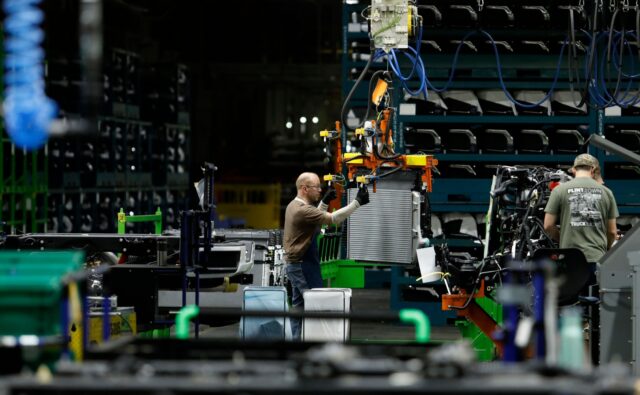The summer slump in U.S. manufacturing seen in surveys by private firms and regional Federal Reserve banks was confirmed on Friday by a report showing factory orders fell for the first time in ten months.
The Commerce Department said orders for goods produced in U.S. factories fell one percent. Economists had thought orders would rise 0.2 percent.
The prior month’s increase was revised down from two percent to 1.8 percent.
New orders for durable goods fell by 0.1 percent after rising 2.3 percent in June. The decline in durable goods follows four consecutive monthly increases.
The figures are seasonally adjusted but not adjusted for inflation. The prices paid to U.S. manufacturers of durable goods rose 0.5 percent, according to the Labor Department’s Producer Price Index. This suggests that the real or inflation-adjusted decline was closer to 0.6 percent, an indication of slumping demand for goods.
New orders for durable consumer goods fell by 1.4 percent and prices rose o.4 percent, indicating a real decline of 1.8 percent.

Surveys of manufacturers have been indicating a softening or even contraction in the sector for a few months. Until July, however, the official government statistics have shown orders growing on a nominal basis. Adjusted for inflation, however, orders have fallen several times over the past year.
Orders for nondurable goods were down 1.9 percent in the month. That’s the biggest drop since April 2020. Much of that reflects the falling price of gasoline. Excluding petroleum, orders fell 0.3 percent.
The prices of nondurable goods less food and energy rose 0.7 percent. So adjusted for inflation, the decline in nondurables is much higher.
Orders for nondefense capital goods, excluding aircraft, climbed a revised 0.3 percent in July, down a bit from the prior reading of a 0.4 percent gain. This category is often considered a proxy for business investment. The PPI gauge of prices of private capital equipment rose 0.5 percent, which likely means that real business investment declined in July.

COMMENTS
Please let us know if you're having issues with commenting.